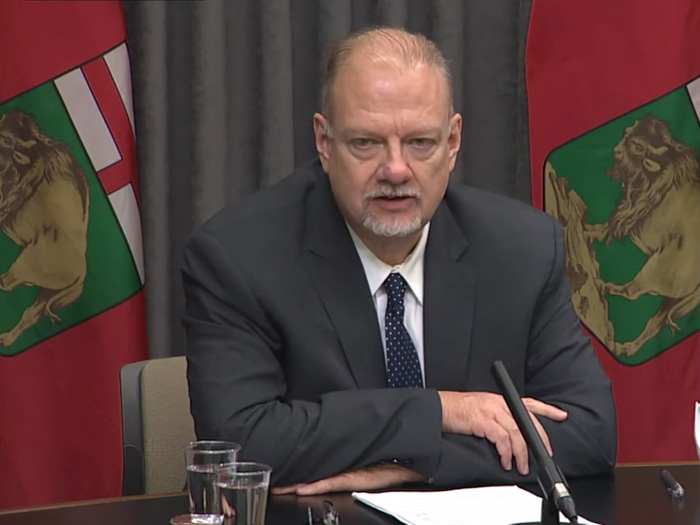Steinbach MLA and Justice Minister Kelvin Goertzen said that concerns about increasing violent crime, particularly those committed with knives and illegal guns, will be a priority for the Manitoba government at a meeting between federal, provincial and territorial justice ministers held in Dartmouth, Nova Scotia from Oct. 12 to 14.
“The meeting will be an opportunity to discuss Manitoba’s priorities related to public safety, including the increased prevalence of violent crime, which continues to concern Manitobans,” said Goertzen. “We need urgent action by the federal government when it comes to matters of serious and violent crime and that is the message we will bring to these meetings.”
In August, Goertzen called upon the federal justice minister to consider changes to the Criminal Code that would make it more difficult for an accused violent offender who has used a knife in the commission of a crime to obtain bail.
Manitoba will continue to advocate for this change and others that will address violent crimes, including those committed with firearms and other weapons, the minister noted. Manitoba will also advocate for long-term, stable funding for the joint Guns and Gangs Violence Action Fund. Collaboration with the federal government is a critical step in helping to keep illegal guns, including homemade guns and 3D-printed firearms out of the hands of criminals, the minister said.
Conversations will take place with the federal government regarding its approach to guns that focuses on legal gun owners and bans. These approaches have had unintended consequences in other jurisdictions such as the influx of illegal ghost guns by criminal networks, the minister said.
These illegally manufactured guns are attractive to organized crime because they are inexpensive, easy to produce, and are referred to by law enforcement as ghost guns, as they have no serial numbers, so they cannot be traced without forensic capabilities, the minister noted.
3D-printed firearms are an increasing trend in illicit firearms manufacturing and trafficking in Manitoba. The Winnipeg Police Service (WPS) first seized 3D-firearm receivers in 2022 and since then WPS, Canada Border Services Agency, Royal Canadian Mounted Police and the Brandon Police Service have seized 3D-printed firearms and components throughout the province.
“I will communicate to my federal counterpart the need to focus efforts and resources in this area towards illegal firearms, criminal interdiction and not on otherwise lawful gun owners,” said Goertzen.
First Nations and Inuit policing will also be a priority at the meeting. The federal government currently funds policing services to First Nation and Inuit communities through the First Nations and Inuit Policing Program (FNIPP), which is delivered through tripartite agreements between federal, provincial or territorial governments, and First Nation or Inuit communities. Although Manitoba has the second largest First Nations population in Canada per capita, it currently receives just 7.5 per cent of FNIPP federal funding.
“The current funding level serves only 30 percent of the First Nations communities in Manitoba, which leaves 70 per cent not served by the program,” said Goertzen. “Our government understands the importance of respectful, culturally appropriate police services and I will advocate for federal support to expand the program to benefit additional communities in our province.”
The minister noted that online sexual abuse of children and youth is also a significant concern and he will prioritize discussion of the issue at the meeting.


